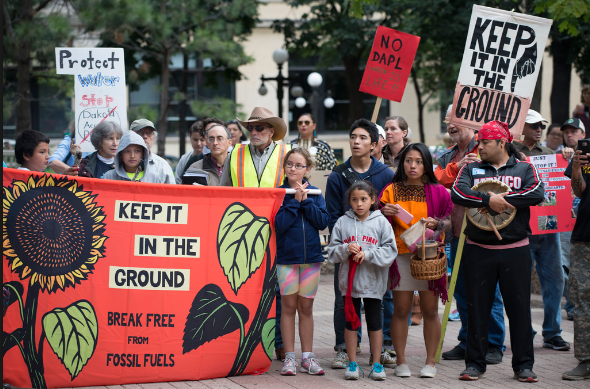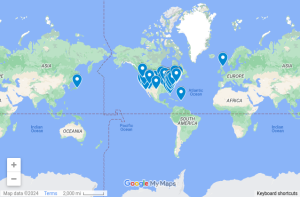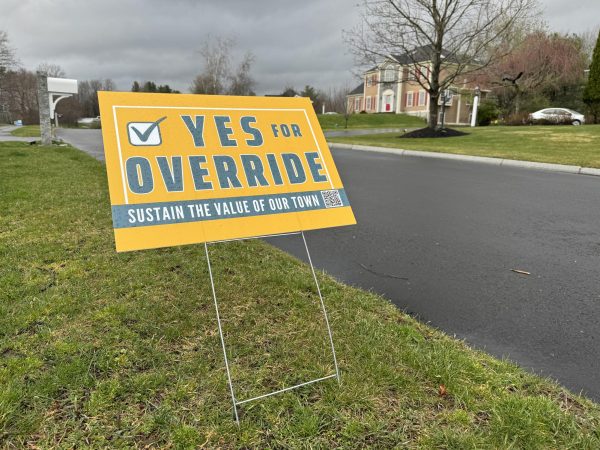Opinion: The Trumpian Pipeline

People protesting the Dakota pipeline.
February 4, 2017
Last Tuesday, January 24th, our newly-elected President Donald J. Trump signed an executive order that will allow for the construction of an oil pipeline going from North Dakota to Illinois. This has sparked controversy throughout the country since the pipeline may be harmful to the environment and runs through land that is considered sacred to the native Sioux tribe.
Under the Obama administration, the pipeline plan was cancelled. The official statement on behalf of the US Department of the Interior, Department of Justice and Army made the position clear, stating: “Construction of the pipeline on Army Corps land bordering or under Lake Oahe will not go forward at this time.”
However, President Trump has other plans. Trying to keep to his campaign promise of job creation, he reversed the cancellation with an executive order allowing construction for the pipeline to begin. The president has the right to execute his wishes, since the presidency has power over environmental concerns, but Trump’s order for the pipeline is against nature. I agree with many protesters worldwide that hurting people and the environment isn’t worth any possible profit.
Trump supporters say that this pipeline will create jobs for construction, jobs creating the materials and jobs for keeping it running. In 2014, the US State Department estimated 42,100 jobs will be needed to create this pipeline. However, after all is said and done only 35-50 permanent jobs will be saved to control and maintain the pipeline. Is killing the earth while continuing the centuries old persecuting of Native Americans really worth it?
No. Nine endangered species live in the Dakota pipeline construction area. These species may take a hit, even to extinction because of the pipeline. It’s construction would ruin mating territory, flight patterns, feeding grounds and more. Whenever species are killed off, every other animal in the food web is effected. Anything that fed of that species now needs a new source and then that population suffers, and the effects ripple all the way up the food chain, even affecting human food sources.
If an accident occurs oil will spill into the water source for the Sioux Reservation killing the animals, including people feeding off the water. To the Sioux the water and the land surrounding it is sacred. Their dead are buried in the land, and the water (which they believe to be alive) are used for their healing rituals.
Every faith and culture has a sacred spot. If you are a Christian, your sacred land is the Church of the Holy Sepulchre. If you are Muslim: The Ka’ab. If you are Jewish: The Wailing Wall. If you are Buddhist: Lumbini. And if you are Hindu: The River Ganges. Even if you do not belong to a faith you have places you think are special. Now imagine where ever your sacred spot is. Imagine men breaking it open, poisoning it with oil, killing the animals that live there, harming the people, uprooting the nearby graves all to make more money.
However, the women and men of the Sioux tribe no longer need to imagine, as it is happening right now.
What can we do? It will most likely be built, but we cannot stay silent: Give to charities supporting the stopping of the pipeline, Peaceably protest in your own community, spread the word. We must not stay silent. As the great genius Leonardo da Vinci once wrote,
“Nothing strengthens authority so much as silence.”
For info on the pipeline go to:















